Community Based Rehabilitation
When our team first met Gulnar, a six-year-old girl diagnosed with cerebral palsy (CP) and a suspected case of CHARGE syndrome, she was unable to walk or communicate. Her mother, devoted and eager to help, joined our rehabilitation programme for children with disabilities (CWD) to learn how to support her daughter’s development at home.
For ten weeks, we worked closely with Gulnar and her mother through intensive therapy sessions. During each visit, we provided a homework programme filled with physical exercises and playful communication games designed to help Gulnar grow stronger and more engaged.
After completing the initial programme, Gulnar and her mother continued to attend monthly follow-up sessions, maintaining steady progress. Eight months later, the results are remarkable: Gulnar is now walking with support — holding onto chairs, tables, or her mother’s hand. She uses a communication board to express herself, and her eating and swallowing have greatly improved thanks to consistent speech therapy and the use of special equipment provided through our programme.
But Gulnar’s story doesn’t end there.
Recently, her mother reached out to our team with an urgent message. She was pregnant again and had been told by doctors that there might be complications with the baby. The doctors advised her to have an abortion, and her husband supported that recommendation.
When we met with her to listen and offer support, she shared these moving words:
“Seeing Gulnar growing up, it doesn’t matter to me if there is something wrong with the baby. I love Gulnar, and I will love this baby too. I have peace about the situation, and I don’t want to go through with the abortion.”
Her strength and peace deeply touched our team. Together, we encouraged her to seek a second opinion at one of our partnering medical centres and to have an open conversation with her husband about her decision.
Gulnar’s story shows how our rehabilitation work goes beyond physical progress — it builds trusting relationships with families, enabling them to share their challenges and find hope, courage, and resilience in the face of uncertainty.
Name changed for privacy
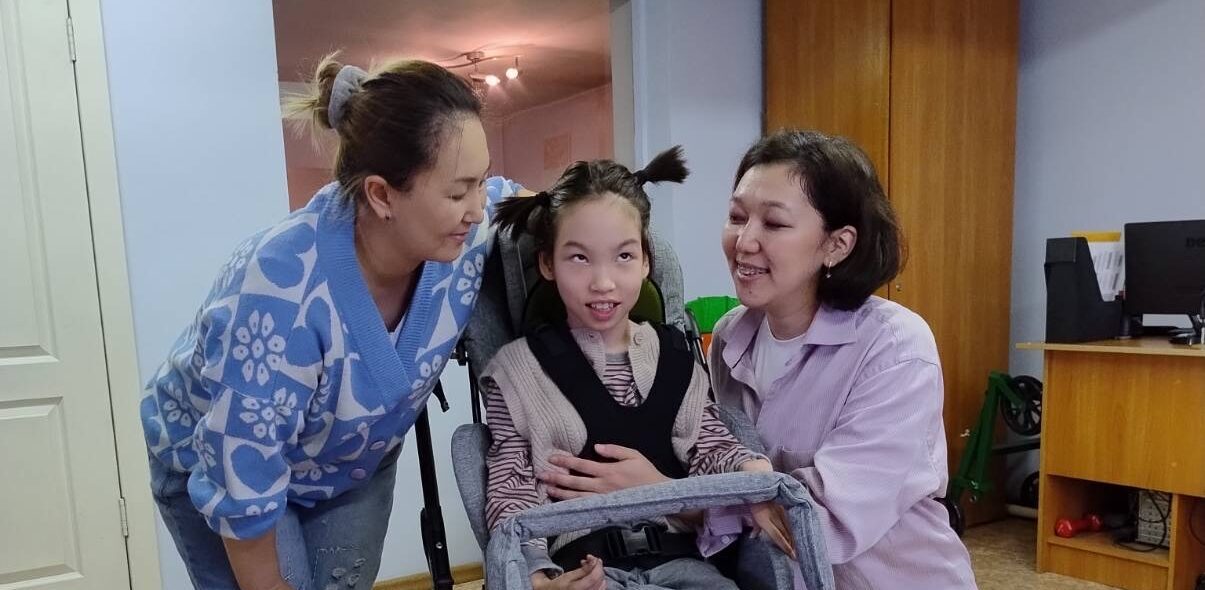
Empowering Mothers
“It is so important that you know your rights!”
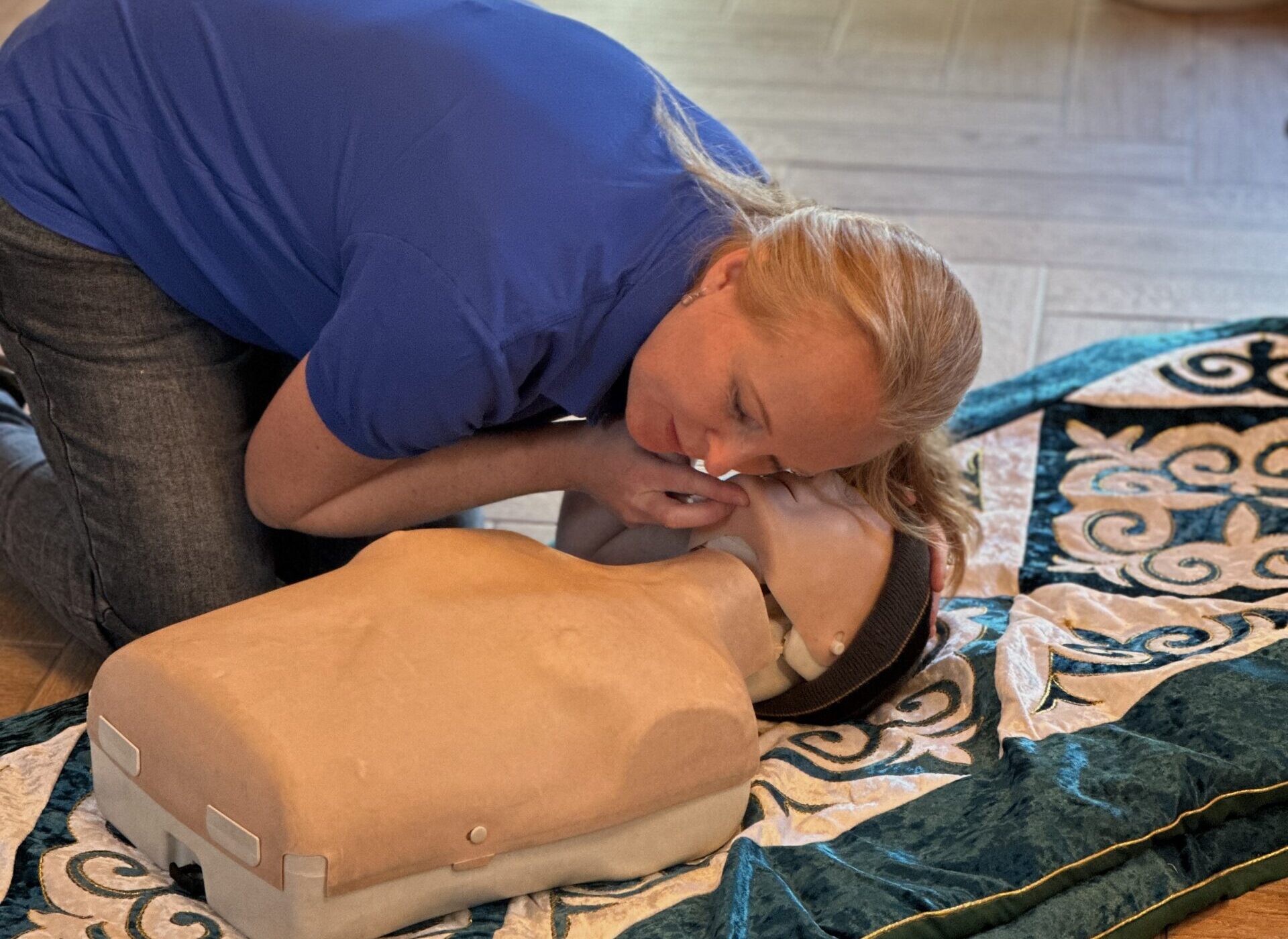
First Aid Training Programme
After living in Central Asia for a year and engaging closely with the local community, I noticed a significant gap in health knowledge. Many people would quickly panic in medical situations simply because they did not know how to respond.
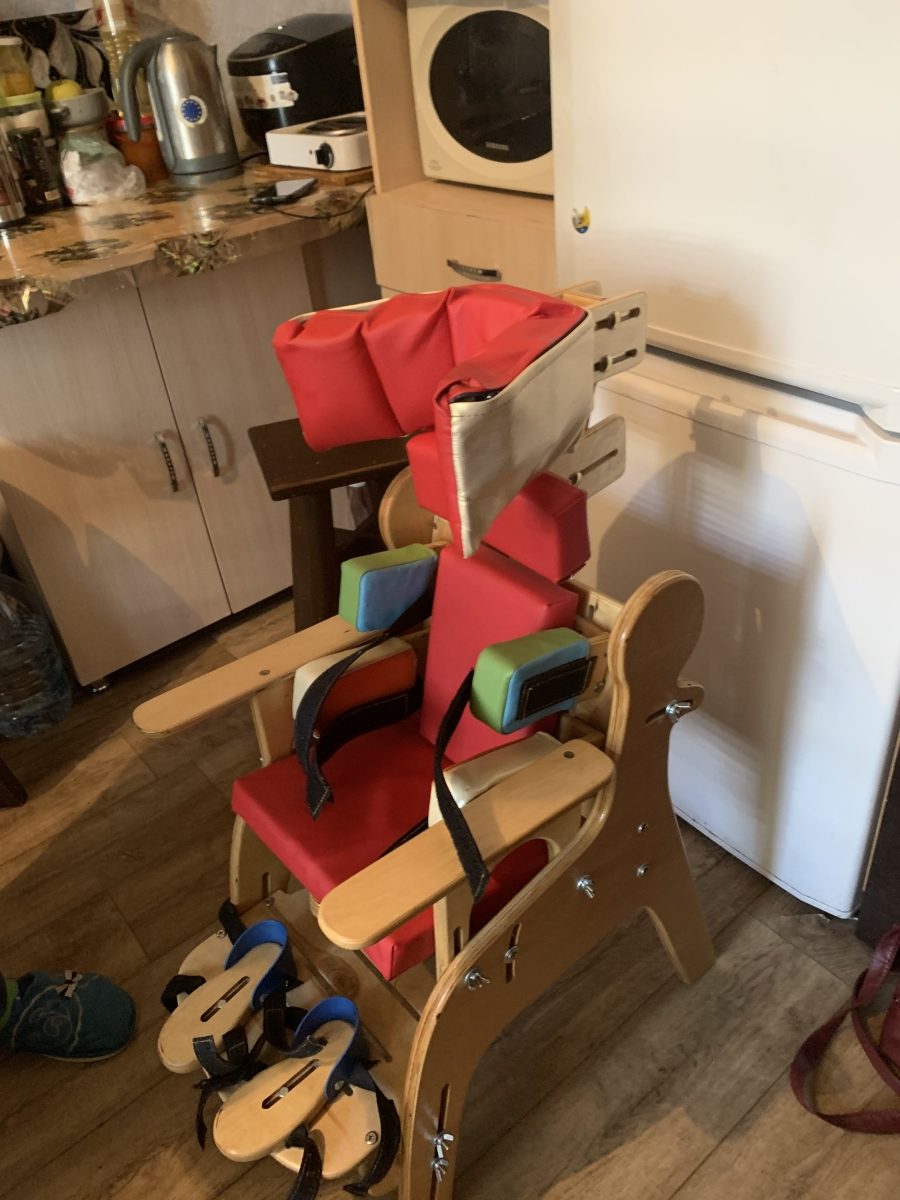
Partnership for Change
Both organizations continue to work in partnership with the mom and her son and we are seeing positive changes in their lives.
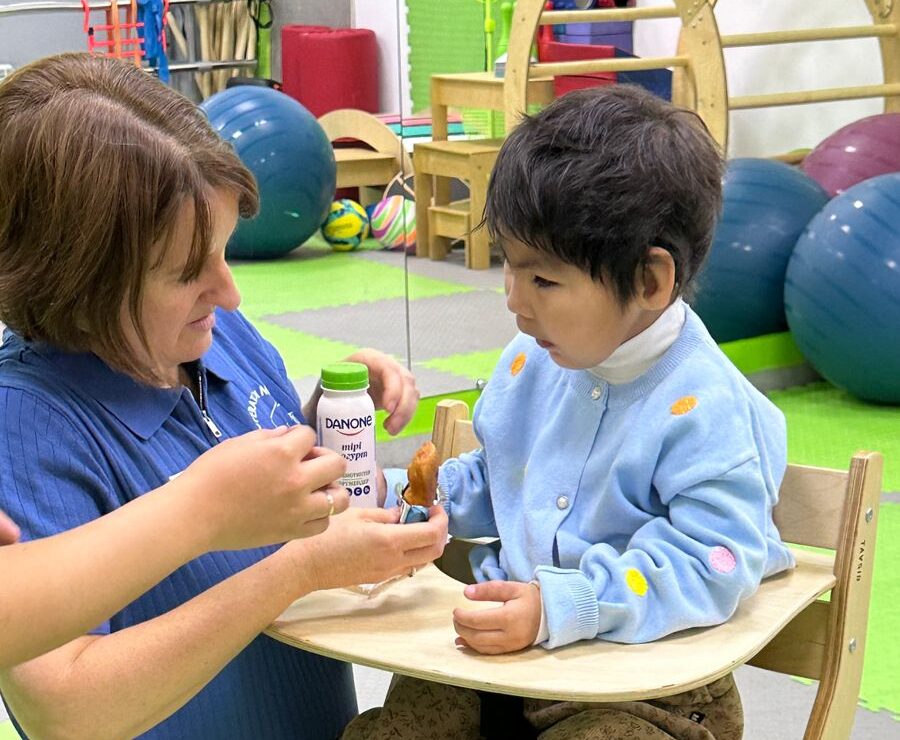
Growing in Strength and Love
When our team first met Gulnar, a six-year-old girl diagnosed with cerebral palsy (CP) and a suspected case of CHARGE syndrome, she was unable to walk or communicate.
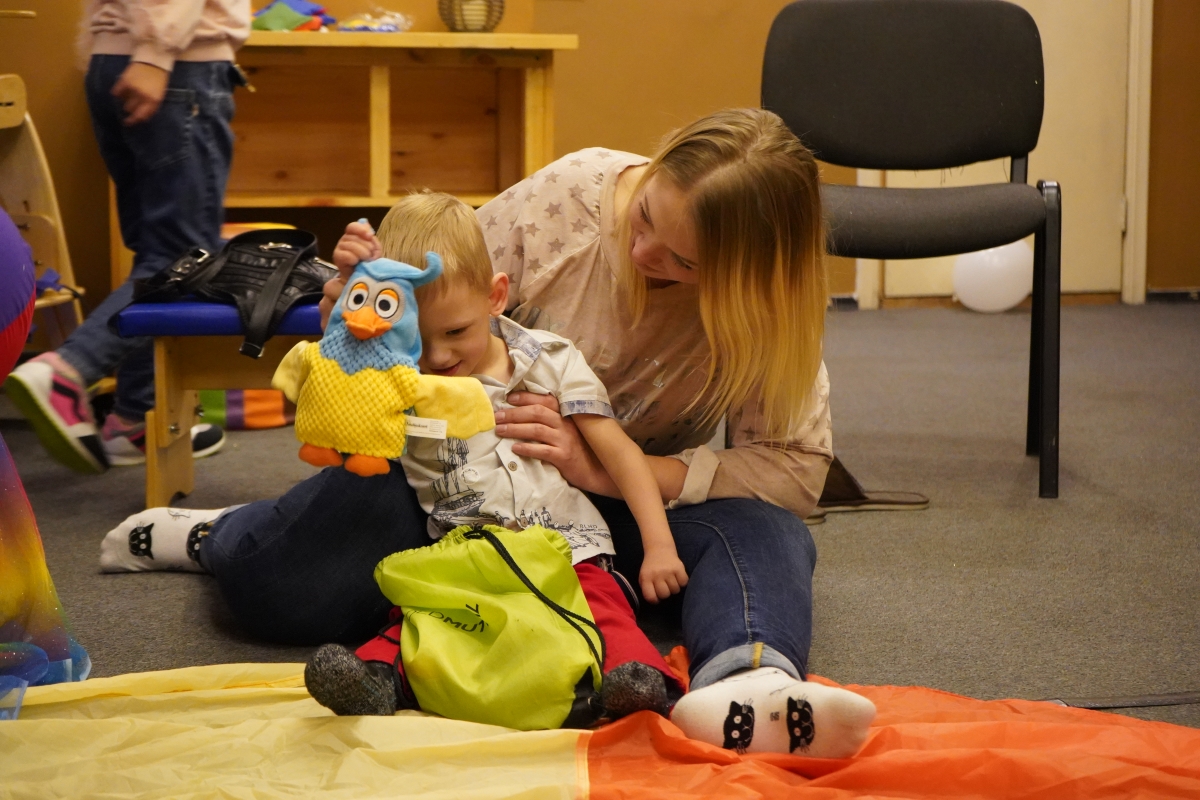
Now He Sits Like a King!
Positioning and proper support for children with cerebral palsy is crucial to their development and also to interacting and engaging with their environment.
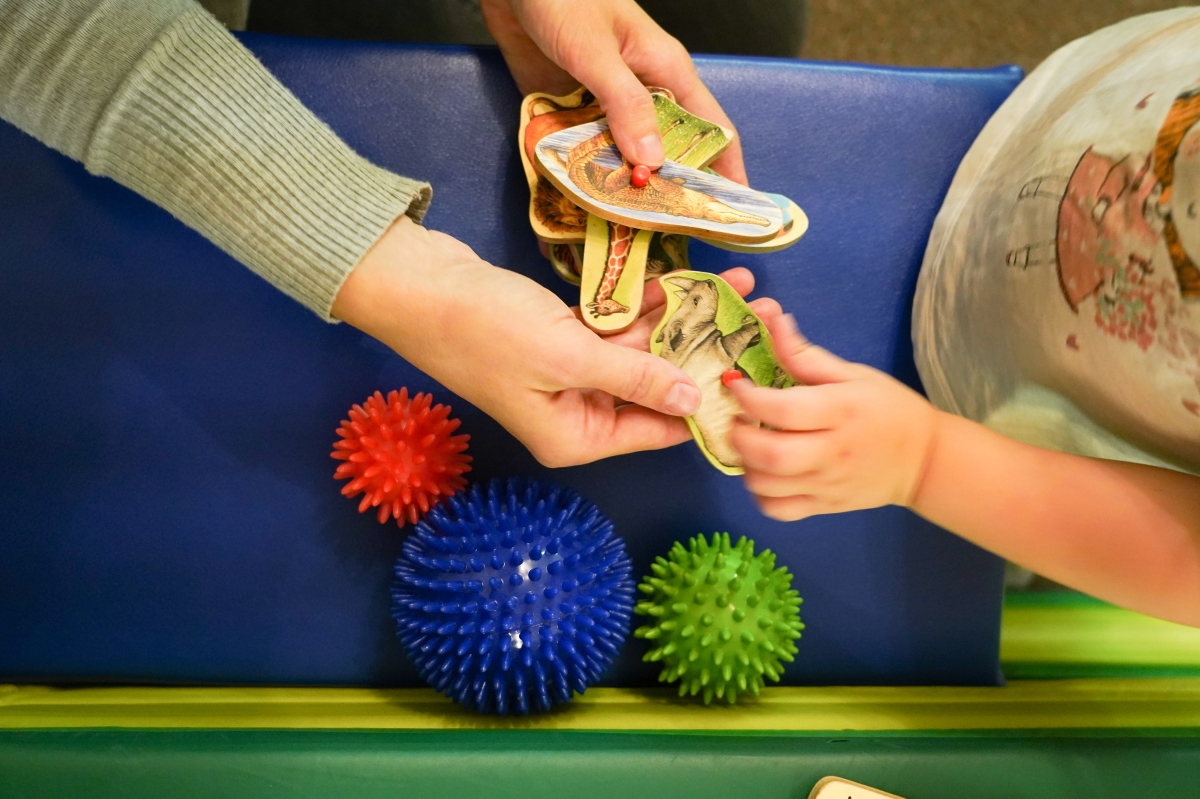
Professionalism Produces Results
Practical training like this empowers therapists to be more professional and to achieve better results in their treatment.
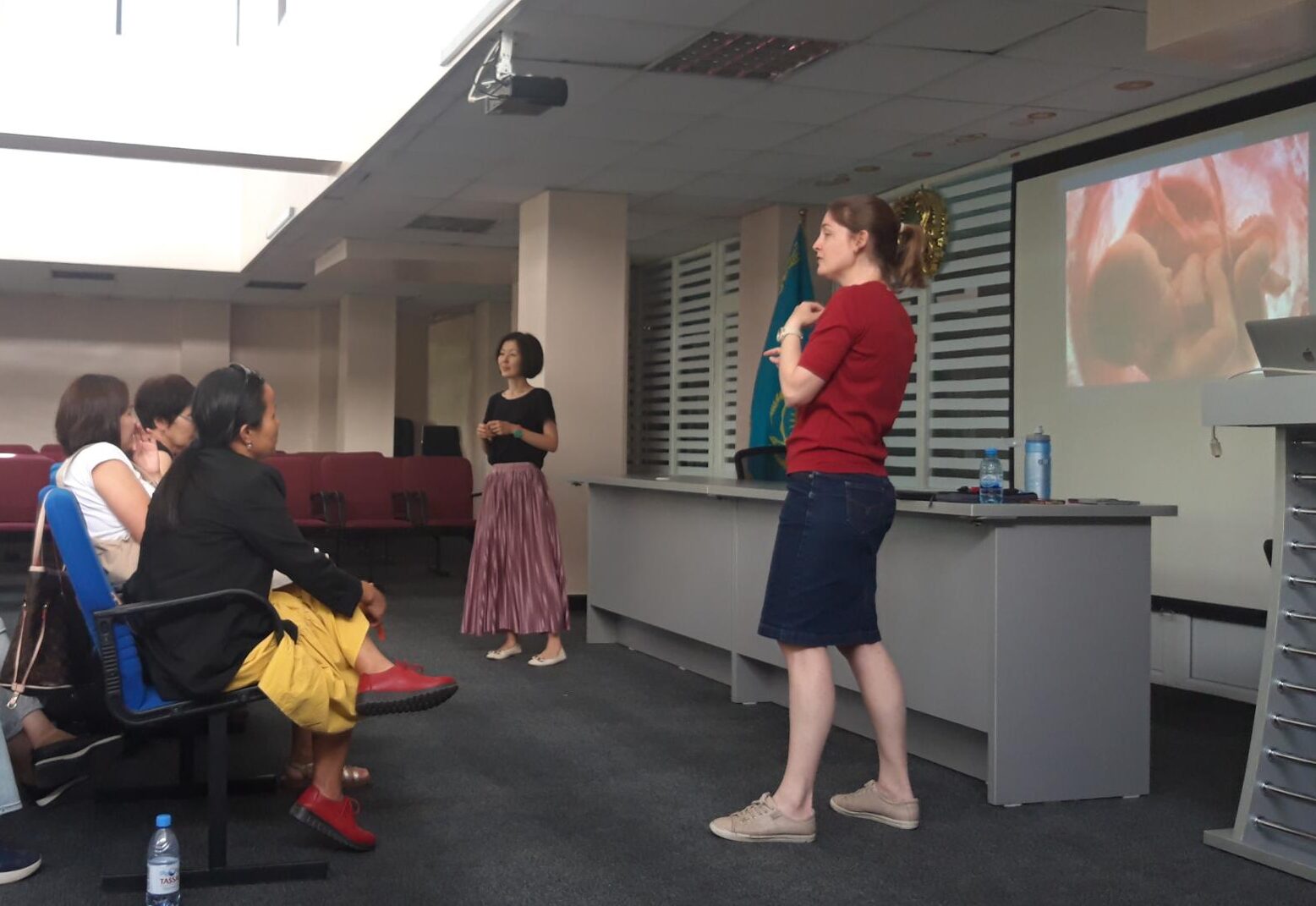
Training for Local Health Care Professionals
Kangaroo care and skin to skin contact between mother and newborn baby – these are vital practices unheard of in the local Kazakh neonatology hospitals.
